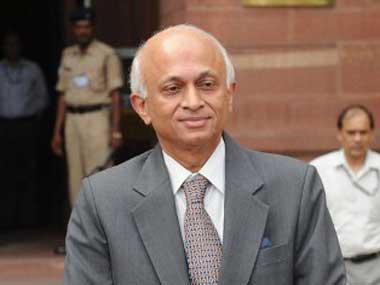The Indian IT industry in the US has contributed $15 billion in taxes alone in the past five years, Foreign Secretary Ranjan Mathai said, stressing on the need to eliminate discriminatory actions.
Mathai, on his first bilateral visit to the US in his capacity as the Foreign Secretary, expressed hope that the economic challenges in the US would not lead to protectionism and concerns of the Indian IT industry will be addressed.
He is believed to have raised the issue in his meeting with the officials of Commerce Department on Monday. “We do hope the current economic challenges in the US would not lead to protectionism and that concerns of Indian IT industry will be addressed quickly,” Mathai said in his address to the Centre for Strategic and International Studies.
[caption id=“attachment_205679” align=“alignleft” width=“380” caption=“Foreign Secretary Ranjan Mathai said New Delhi remains committed to pursuing economic reforms in India in their broadest sense. AFP”]  [/caption]
NASSCOM estimates that the Indian IT firms employ over 100,000 in the US up from 20,000 six years ago. Mithai said it supports 200,000 other jobs, including indirect ones, apart from enhancing the competitiveness of some the US industries.
“Most Indian companies are setting up development centres. Indian IT industry contributed $15 billion in taxes over the last five years. This success story should not be set back by stringent visa regulations which act as a non-tariff barrier,” Mathai said.
“According to a back of envelope calculation, Indians paid over $200 million in visa fees. Perhaps $30-50 million has been taken from young aspiring Indians working in businesses whose US visas were rejected. The pink slip has become a greenback!” Mathai said.
“It needs reiteration that the targets of these discriminatory actions are precisely those who have contributed intellectually to the climate of reform in India, and who have been votaries of strong India-US relations,” said the foreign secretary.
As the two economic ties deepen, India and the US will obviously have a growing range of policy and regulatory concerns with each other, he noted. “But, we have in place an elaborate set of bilateral mechanisms to address them. While we should expeditiously conclude a Bilateral Investment Treaty, we must look beyond it, too,” he said, noting that the US is the only advanced
economy in the world with which India has not concluded or is pursuing a Comprehensive Economic Partnership Agreement.
“So, we should not only focus on expanding trade and investment, but also use the power of innovation to make our economies global leaders in the 21st century, and at the same time, address the needs of the poorest sections of the
population in the world and find solutions to the challenges of clean energy, food security, health, education,” Mathai said.
India and the United States, he said, can and must strengthen their economic partnership. The flow of trade in goods and services, and investments in both directions has grown several times in the past two decades increasing to $40 billion of US imports, both goods and services.
PTI


)
)
)
)
)
)
)
)
)



